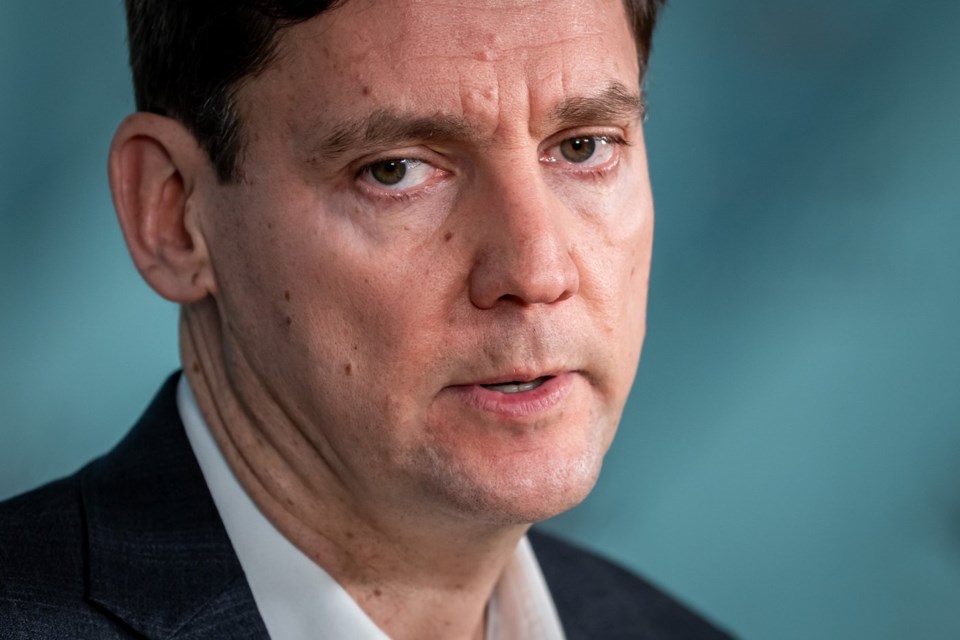VANCOUVER — British Columbia Premier David Eby says he believes the recent tariff friction with the United States will fundamentally change the way Canadians approach trade with their southern neighbours, and things "will never go back to the way that we were before."
Eby says Canadians were "way too reliant on the decisions of one person in the White House" and "took our relationship for granted," adding that he believes the province and the country will emerge stronger from this experience because "the world needs what we have."
The premier made the comments before he flew from Vancouver to Washington, D.C., where he will be joined by other provincial leaders to meet with U.S. lawmakers about trade and tariffs as the threat of a steep levy on more Canadian goods looms.
The trip comes just after U.S. President Donald Trump slapped 25 per cent tariffs on all steel and aluminum.
Previously, Eby had called the U.S. threat of tariffs on Canadian goods a "declaration of economic war against a trusted ally and friend" and "a complete betrayal" of the historic bond between Canada and the United States.
The premiers' trip, which will include meeting with business and labour leaders this week, comes after Trump's threat of tariffs was delayed until at least March 4.
When asked if the premiers will have access to "decision makers who are the closest to the president," Eby says they are working to set up those meetings but may not get confirmation until "the day before or the day of" the meeting, if it were to happen.
"We are trying hard to get those meetings," he says. "And I can assure you that we do have meetings set up with a number of senior decision makers in (U.S.) government."
One group of politicians the Canadian premiers will seek to actively engage with will be those from Trump's Republican party, Eby adds.
"This is a Republican-led initiative against Canada," Eby says of the tariff threats. "It's a group we need to talk to. Obviously, we need to help them understand the importance of our tightly linked economies, and that while they may think they're trying to get something from Canada, it's just mutually assured damage.
"It's a war where the shrapnel goes in all directions."
Eby also says his government will ensure that B.C. businesses can diversify and that interprovincial trade barriers can be brought down.
Since the tariff threat was made, the B.C. government announced it will fast track 18 critical mineral and energy projects, set up a trade and economic security task force and a new cabinet committee "war room" to co-ordinate ways to protect workers, businesses and economy.
"I am convinced, because the world needs what we have, that we're going to come out the other side of this stronger, more independent, more resilient and more prosperous," Eby says of the tariff tensions. "But in the meantime, a bunch of unnecessary damage will be done."
Ravi Kahlon, the government minister appointed to co-ordinate the tariff threat, said Monday that the government has been working with aluminum maker Rio Tinto and others on how to move their products to other markets away from the United States.
He said that Eby recently met with leaders at Rio Tinto and the company had confidence that it could find fresh markets for its aluminum produced at the Kitimat facility.
Though B.C. has a more diversified economy than other provinces, there are concerns that if the tariffs are realized, it will cause significant job loss and throw the economy into a recession.
When the United States was initially expected to implement the hefty tariffs on Feb. 1, Eby directed the BC Liquor Distribution Branch to stop buying American liquor from "red states" and Crown corporations to stop buying U.S. goods and services.
The provincial retaliation was paused after the one-month reprieve was negotiated at the federal level.
The tariff threats have caused a wave of retail patriotism across the country as governments encourage residents to buy Canadian-made goods.
This report by The Canadian Press was first published Feb. 11, 2025.
Chuck Chiang, The Canadian Press



